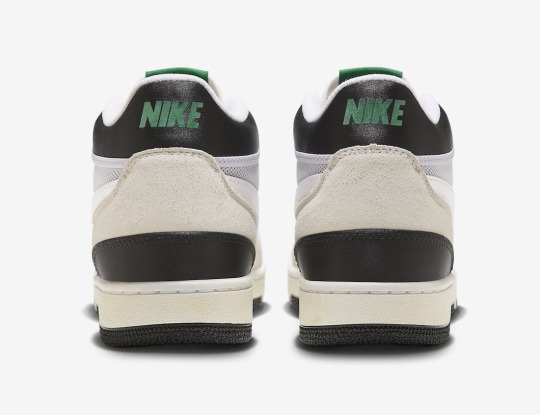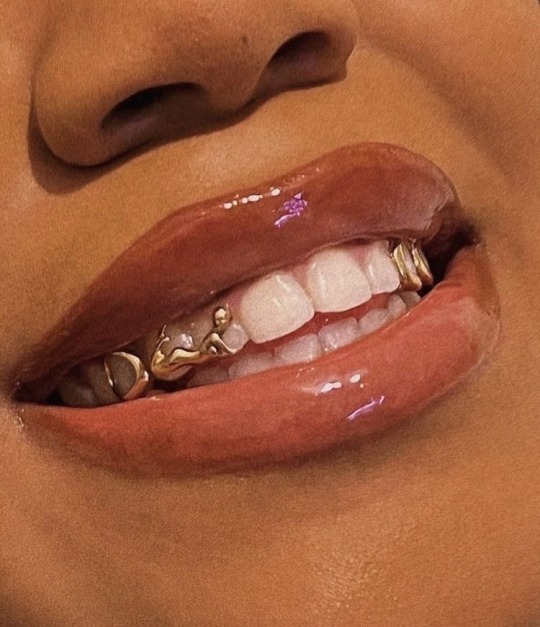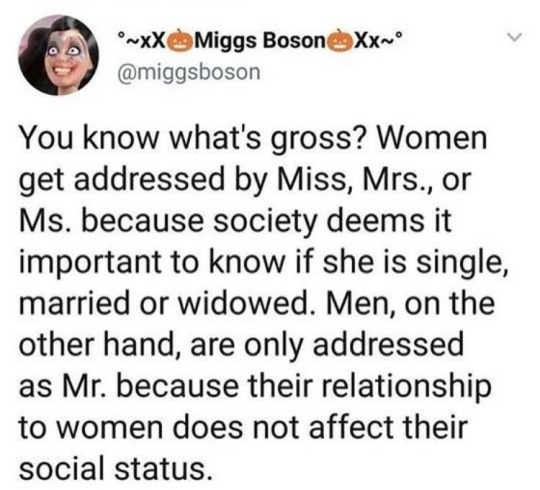#social status
Explore tagged Tumblr posts
Text

The Son of Man by René Magritte (1964)
The Psychology of Transgression and Guilt Magritte’s The Son of Man immediately captivates with its two central symbols: the apple and the figure’s formal attire. The apple, suspended in front of the man’s face, evokes not only the biblical narrative of Eden but also the Oedipal Complex, where transgression against the father’s law leads to guilt. In the biblical tale, Adam consumes the forbidden fruit offered by Eve, symbolizing the birth of self-awareness, shame, and the burden of guilt. In this painting, the man’s face is concealed behind the apple, echoing the unresolved guilt from that original transgression.
From a psychoanalytic perspective, the apple mirrors the child’s desire for the mother and the violation of paternal boundaries, evoking the tension between desire and punishment. Before consuming the apple, Adam was unaware of his nakedness, just as the child, before transgressing paternal laws, is innocent of their own desires. Magritte’s man, in contrast, is fully dressed—his body covered by a formal suit, suggesting an overcompensation for that earlier transgression. His attire, like the suit of a corporate leader, represents conformity to societal rules and the defensive structures built to contain one’s hidden impulses.
However, it’s the apple that holds the deepest psychological weight. By hiding the man’s face—his core of identity and expression—it creates a psychological tension between the desire to be seen and the fear of being exposed. For a leader or executive, this speaks to the unconscious burden carried beneath the polished exterior, where the drive for success is continually shaped by the fear of transgression and the guilt of overstepping social or professional boundaries.
The Suit as a Symbol of Conformity and Defense The man’s formal attire serves as more than just a uniform of professionalism—it becomes a psychological defense. The suit, much like the hat perched atop his head, symbolizes social status and conformity, a way to signal adherence to the expectations of society, much like corporate leaders navigate the demands of shareholders, regulatory bodies, and industry norms. Yet, behind this polished exterior, the apple remains—a reminder that no matter how much we align ourselves with social structures, the hidden burden of guilt and the desire to transgress still linger beneath the surface.
Leaders who resonate with this painting might feel an unconscious connection to this duality of identity. On one hand, they must project a facade of control, success, and conformity. On the other, they may grapple with the weight of unresolved guilt from past decisions or actions—choices that, like the apple, remain hidden from public view but deeply influence their sense of self.
Transgression, Authority, and the Pursuit of Power The Oedipal Complex present in this work also extends into the realms of power and authority. The apple, symbolizing forbidden desire, creates a tension with the suit, a marker of societal success and control. For those drawn to this painting, it may evoke a subconscious acknowledgment of the transgressive impulses that often drive ambition—the desire to challenge authority and push past boundaries, while simultaneously seeking approval from the very structures they seek to defy.
For executives or professionals who might display this work, The Son of Man serves as a psychological mirror, reflecting the internal struggles faced in their journey toward leadership. The fear of exposure, the guilt of transgression, and the need for external validation all intertwine within the image. It reminds us that no matter how elevated one becomes in status or authority, the unconscious drive to rebel and the weight of guilt are never fully erased.
The Apple as the Unconscious Burden of Guilt At its core, the apple not only hides the man’s face but represents the guilt of wanting more—more power, more success, more control. In leadership, this often translates into a continuous striving for achievement while carrying the fear of overstepping boundaries. The man’s face, hidden yet central, reminds us that in the pursuit of success, there is always a part of the self that remains concealed—driven by past transgressions and the desire to surpass societal limitations.
For those drawn to this painting, it could signal an unconscious recognition of the cost of ambition—that the pursuit of power, while necessary, also comes with a burden of guilt and the need to reconcile one’s hidden desires with public expectations.
#aesthetic#art history#psychoanalysis#artwork#contemporary art#modern art#art gallery#psychology#art collection#fine art#rene magritte#son of man#wealth#money#personal development#resilience#power#social status#introspection#artinspiration#art#art analysis
140 notes
·
View notes
Text



8 notes
·
View notes
Text
By: Rob Henderson
Published: Nov 19, 2023
Many have discovered an argument hack. They don’t need to argue that something is false. They just need to show that it’s associated with low status. The converse is also true: You don’t need to argue that something is true. You just need to show that it’s associated with high status. And when low status people express the truth, it sometimes becomes high status to lie.
In the 1980s, the psychologists Richard E. Petty and John T. Cacioppo developed the “Elaboration Likelihood Model” to describe how persuasion works. “Elaboration” here means the extent to which a person carefully thinks about the information. When people’s motivation and ability to engage in careful thinking is present, the “elaboration likelihood” is high. This means people are likely to pay attention to the relevant information and draw conclusions based on the merits of the arguments or the message. When elaboration likelihood is high, a person is willing to expend their cognitive resources to update their views.
Two paths to persuasion
The idea is that there are two paths, or two “routes,” to persuading others. The first type, termed the “central” route, comes from careful and thoughtful consideration of the messages we hear. When the central route is engaged, we actively evaluate the information presented, and try to discern whether or not it’s true.
When the “peripheral” route is engaged, we pay more attention to cues apart from the actual information or content or the message. For example, we might evaluate someone’s argument based on how attractive they are or where they were educated, without considering the actual merits of their message.
When we accept a message through the peripheral route, we tend to be more passive than when we accept a message through the central route. Unfortunately, the peripheral route is more prevalent because we are exposed to an increasingly large amount of information.
The renowned psychologists Susan Fiske and Shelley Taylor have characterized humans as “cognitive misers.” They write, “People are limited in their capacity to process information, so they take shortcuts whenever they can.”
We are lazy creatures who try to expend as little mental energy as possible.
And people are typically less motivated to scrutinize a message if the source is considered to be an expert. We interpret the message through the peripheral route.
This is one reason why media outlets often appoint experts who mirror their political values. These experts lend credibility to the views the outlet espouses. Interestingly, though, expertise appears to influence persuasion only if the individual is identified as an expert before they communicate their message. Research has found that when a person is told the source is an expert after listening to the message, this new information does not increase the person’s likelihood of believing the message.
It works the other way, too. If a person is told that a source is not an expert before the message, the person tends to be more skeptical of the message. If told the source is not an expert after the message, this has no effect on a person’s likelihood of believing the message.
This suggests that knowing a source is an expert reduces our motivation to engage in central processing. We let our guards down.
As motivation and/or ability to process arguments is decreased, peripheral cues become more important for persuasion. Which might not bode well.
However, when we update our beliefs by weighing the actual merits of an argument (central route), our updated beliefs tend to endure and are more robust against counterpersuasion, compared to when we update our beliefs through peripheral processing. If we come to believe something through careful and thoughtful consideration, that belief is more resilient to change.
This means we can be more easily manipulated through the peripheral route. If we are convinced of something via the peripheral route, a manipulator will be more successful at using the peripheral route once again to alter our initial belief.
Social consequences of our beliefs
But why does this matter? Because by understanding how and why we come to hold our beliefs, we can better understand ourselves and guard against manipulation.
The founders of the elaboration likelihood model wrote that, “Ultimately, we suspect that attitudes are seen as correct or proper to the extent that they are viewed as beneficial for the physical or psychological well-being of the person.”
In his book The Social Leap, the evolutionary psychologist William von Hippel writes, “a substantial reason we evolved such large brains is to navigate our social world… A great deal of the value that exists in the social world is created by consensus rather than discovered in an objective sense… our cognitive machinery evolved to be only partially constrained by objective reality.” Our social brains process information not only by examining the facts, but also considering the social consequences of what happens to our reputations if we believe something.
Indeed, in his influential theory of social comparison processes, the eminent psychologist Leon Festinger suggested that people evaluate the “correctness” of their opinions by comparing them to the opinions of others. When we see others hold the same beliefs as us, our own confidence in those beliefs increases. Which is one reason why people are more likely to proselytize beliefs that cannot be verified through empirical means.
In short, people have a mechanism in their minds. It stops them from saying something that could lower their status, even if it’s true. And it propels them to say something that could increase their status, even if it’s false. Sometimes, local norms can push against this tendency. Certain communities (e.g., scientists) can obtain status among their peers for expressing truths. But if the norm is relaxed, people might default to seeking status over truth if status confers the greater reward.
Furthermore, knowing that we could lose status if we don’t believe in something causes us to be more likely to believe in it to guard against that loss. Considerations of what happens to our own reputation guides our beliefs, leading us to adopt a popular view to preserve or enhance our social positions. We implicitly ask ourselves, “What are the social consequences of holding (or not holding) this belief?”
But our reputation isn’t the only thing that matters when considering what to believe. Equally important is the reputation of others. Returning to the peripheral route of persuasion, we decide whether to believe something not only if lots of people believe it, but also if the proponent of the belief is a prestigious person. If lots of people believe something, our likelihood of believing it increases. And if a high-status person believes something, we are more prone to believing it, too.
Prestigious role models
This starts when we are children. In her recent book Cognitive Gadgets, the Oxford psychologist Cecilia Hayes writes, “children show prestige bias; they are more likely to copy a model that adults regard as being higher social status- for example, their head-teacher rather than an equally familiar person of the same age and gender.” Hayes cites a 2013 study by Nicola McGuigan who found that five-year-old children are “selective copiers.” Results showed that kids were more likely to imitate their head-teacher rather than an equally familiar person of the same age and gender. Young children are more likely to imitate a person that adults regard as being higher status.
People in general favor mimicking prestigious people compared to ordinary people. This is why elites have an outsized effect on culture, and why it is important to scrutinize their ideas and opinions. As a descriptive observation, the opinions of my friend who works at McDonald’s have less effect on society than the opinions of my friend who works at McKinsey. If you have any kind of prominence, you unavoidably become a model that others, including children, are more likely to emulate.
Indeed, the Canadian anthropologist Jerome Barkow posits that people across the world view media figures as more prestigious than respected members of their local communities. People on screen appear to be attractive, wealthy, popular, and powerful. Barkow writes, “All over the world, children are learning not from members of their own community but from media figures whom they perceive as prestigious… local prestige is debased.” As this phenomenon continues to grow, the opinions and actions of the globally-prestigious carry even more influence.
Of course, people don’t copy others with high-status solely because they hope that mimicking them will boost their own status. We tend to believe that prestigious people are more competent; prominence is a heuristic for skill.
In a recent paper about prestige-based social learning, researchers Ángel V. Jiménez and Alex Mesoudi wrote that assessing competence directly “may be noisy and costly. Instead, social learners can use short-cuts either by making inferences from the appearance, personality, material possessions, etc. of the models.”
For instance, a military friend of mine used to be a tutor for rich high school students. He himself is not as wealthy as them, and disclosed to me that he paid $200 to replace his old earphones for AirPods. This was so that the kids and their families would believe he is in the same social position as them, and therefore qualified to teach.
Prestige paradox
Which brings us to a question: Who is most susceptible to manipulation via peripheral persuasion? It might seem intuitive to believe that people with less education are more manipulable. But research suggests this may not be true.
High-status people are more preoccupied with how others view them. Which means that educated and/or affluent people may be especially prone to peripheral, as opposed to central, methods of persuasion.
Indeed, the psychology professor Keith Stanovich, discussing his research on “myside bias,” has written, “if you are a person of high intelligence… you will be less likely than the average person to realize you have derived your beliefs from the social groups you belong to and because they fit with your temperament and your innate psychological propensities.”
Students and graduates of top universities are more prone to myside bias. They are more likely to “evaluate evidence, generate evidence, and test hypotheses in a manner biased toward their own prior beliefs, opinions, and attitudes.”
This is not unique to our own time. William Shirer, the American journalist and author of The Rise and Fall of the Third Reich, described his experiences as a war correspondent in Nazi Germany. Shirer wrote, “Often in a German home or office or sometimes in a casual conversation with a stranger in a restaurant, beer hall, or café, I would meet with outlandish assertions from seemingly educated and intelligent persons. It was obvious they were parroting nonsense they heard on the radio or read in the newspapers. Sometimes one was tempted to say as much, but one was met with such incredulity, as if one had blasphemed the Almighty.”
Likewise, in a fascinating study on the collapse of the Soviet Union, researchers have found that university-educated people were two to three times more likely than high school graduates to say they supported the Communist Party. White-collar professional workers were likewise two to three times more supportive of communist ideology, relative to farm laborers and semi-skilled workers.
Educational divides within the US today are consistent with these historical patterns. The Democratic political analyst David Shor has observed that, “Highly educated people tend to have more ideologically coherent and extreme views than working-class ones. We see this in issue polling and ideological self-identification. College-educated voters are way less likely to identify as moderate.”
One possibility for this is that regardless of time or place, affluent members of society are more likely to say the right things to either preserve status or gain more of it. A series of studies by researchers at the University of Queensland found that, “relative to lower-class individuals, upper-class individuals have a greater desire for wealth and status… it is those who have more to start with (i.e., upper-class individuals) who also strive to acquire more wealth and status.”
A more recent set of studies led by Cameron Anderson at the University of Berkeley found that social class, measured in terms of education and income, was positively associated with the desire for social status. People who had more education and money were more likely to agree with statements like “I enjoy having influence over other people’s decision making” and “It would please me to have a position of prestige and social standing.”
Social status loss aversion
Who feels most in danger of losing their reputations, though? Turns out, those same exact people. A survey by the Cato Institute in collaboration with YouGov asked a nationally representative sample of 2,000 Americans various questions about self-censorship.
They found that highly educated people are the most concerned about losing their jobs or missing out on job opportunities because of their political views. Twenty-five percent of those with a high school education or less are afraid of getting fired or hurting their employment prospects because of their political views, compared with 34 percent of college graduates and an astounding 44 percent of people with a postgraduate degree.
Results from a recent paper titled ‘Keeping Your Mouth Shut: Spiraling Self-Censorship in the United States’ by the political scientists James L. Gibson and Joseph L. Sutherland is consistent with the findings from Cato/Yougov. They find that self-censorship has skyrocketed. In the 1950s, at the height of McCarthyism, 13.4 percent of Americans reported that “felt less free to speak their mind than they used to.” In 1987, the figure had reached 20 percent. By 2019, 40 percent of Americans reported that they did not feel free to speak their minds. This isn’t a partisan issue, either. Gibson and Sutherland report that, “The percentage of Democrats who are worried about speaking their mind is just about identical to the percentage of Republicans who self-censor: 39 and 40 percent, respectively.”
The increase is especially pronounced among the educated class. The researchers report, “It is also noteworthy and perhaps unexpected that those who engage in self-censorship are not those with limited political resources… self-censorship is most common among those with the highest levels of education… This finding suggests a social learning process, with those with more education being more cognizant of social norms that discourage the expression of one’s views.”
Highly-educated people appear to be the most likely to express things they don’t necessarily believe for fear of losing their jobs or their reputation. Within the upper class, the true believers set the pace, and those who are loss-averse about their social positions go along with it.
Interestingly, there is suggestive evidence indicating that education is negatively associated with one’s sense of power. That is, the more education someone has, the more likely they are to agree with statements like, “Even if I voice them, my views have little sway” and “My ideas and opinions are often ignored.” Granted, the correlation is quite small (r = -.15). Still, the finding is significant and in the opposite direction of what most people would expect.
Research by Caitlin Drummond and Baruch Fischhoff at Carnegie Mellon University found that people with more education, science education, and science literacy are more polarized in their views about scientific issues depending on their political identity. For example, the people who are most concerned about climate change? College-educated Democrats. The people who are least concerned? College-educated Republicans. In contrast, less educated Democrats and Republicans are not so different from one another in their views about climate change.
Likewise, in an article titled “Academic and Political Elitism,” the sociologist Musa Al-Gharbi has summarized related research, writing, “compared to the general public, cognitively sophisticated voters are much more likely to form their positions on issues based on partisan cues of what they are ‘supposed’ to think in virtue of their identity as Democrats, Republicans, etc.”
High education and low opinions
It’s also useful to understand how highly educated people view others and their social relationships. Consider a paper titled ‘Seeing the Best or Worst in Others: A Measure of Generalized Other-Perceptions’ led by Richard Rau at the University of Münster. Rau and his colleagues were interested in how various factors influence people’s perceptions of others.
In the study, participants looked at social network profiles of people they did not know. They also viewed short video sequences of unfamiliar people describing a neutral personal experience like traveling to work. Researchers then asked participants to evaluate the people in the social media profiles and videos. Participants were asked how much they agreed with statements like “I like this person,” and “This person is cold-hearted.” Then participants responded to various demographic and personality questions about themselves.
Some findings weren’t so surprising. The researchers found, for example, that people who scored highly on the personality traits of openness and agreeableness tended to hold more favorable views of others.
More sobering, though, is that higher education was consistently related to less positive views of other people. In their paper they write, “to understand people’s feelings, behaviors, and social relationships, it is of key importance to know which general view they hold about others… the better people are educated, the less positive their other-perceptions are.”
So affluent people care the most about status, believe they have little power, are afraid of losing their jobs and reputation, and have less favorable views of others.
In short, opinions can confer status regardless of their truth value. And the individuals most likely to express certain opinions in order to preserve or enhance their status are also those who are already on the upper rungs of the social ladder.
There may be unpleasant consequences for this misguided use of intellect and time on the part of highly educated and affluent people. If the most fortunate members of society spend more time speaking in hushed tones, or live in fear of expressing themselves, or are more involved in culture wars, that is less time they could spend using their mental and economic resources to solve serious problems.
Smart people are usually better at finding the truth. But they’re also better at knowing which way the ideological winds are blowing, and thereby producing and accepting absurdities.
==
Explains why so many well-off college students with AirPods, a standard order at Starbucks and an Amazon account pretend to want communism, yet can't survive 5 minutes without Wi-Fi or TikTok.
#Rob Henderson#luxury beliefs#social status#social consequences#human psychology#loss aversion#religion is a mental illness
11 notes
·
View notes
Note
What one of your anons said sparked my intrest. I'm not so invested I, as they called it " levelling up " , but I do watch videos about fashion and etiquette too. I think it's important to be informed about dining etiquette, elegance, wine tasting, what people see as " boujee ", but I'm not acting like a snob.
I've noticed that a lot of the people who either want to get into the world of the rich, or are rich, act as if the entire world is theirs and are extremely rude and entitled. Even if you have things in common, at the end if you Don't have money they'll look down on you or pity you. There seems to be quite raise in this old money aesthetic online and people bought into the idea that you can just dress up and immediately be thought of as rich. To me , the world of rich people seems insufferable and this trend around looking like you belong to the high class is ruining kinda everything for those who want to dress a certain way and like this tipe of clothing because they'll be seen as trying to hard , or faking it for attention.
I agree that education on all of these topics can only enrich and enhance your outlook/quality of life.
Regarding the topic of people trying to look or act "rich," all I will say is: Confidence is quiet. Those who are the most vocal about their good deeds, status, and qualities are often overcompensating –especially if they make it their entire identity,
Totally agree about this rebranding of the minimalist aesthetic. As someone who always gravitated toward these styles (forever a Philophile) and works in fashion, it's funny to me how avid followers of the "quiet luxury" trend never discuss fabric quality/the cut of garments and silhouette details as these are the greatest indicators of high-end design you'll find – whether an item costs $50 or $500.
Love the open dialogue within this community xx
#femmefatalevibe#quiet luxury#classy life#high fashion#fashion blog#wardrobe design#q/a#etiquette#classy#elegant fashion#upper class#social status
9 notes
·
View notes
Text









Social Status x Nike Mac Attack
#Social Status#Nike Mac Attack#Nike#Mac Attack#DZ4636-100#2023#Green#November 17#$140#Sneaker#Nike Sneaker#Sneakers
5 notes
·
View notes
Text
"Destiny plays a hand in all our fates, but I often think about the sequence of events that meant I ended up being born in London... This is a reminder that the biggest factors that define your life outcomes are the parents you are born to and which country you are born in – two things none of us have any control over."
- Know Your Place by Faiza Shaheen
#my summer nonfiction rabbit hole ended up not being the specific rabbit hole i had planned#but that’s okay i’ll take it#book quotes#elitism#quotes#social status#privilege#capitalism#faiza shaheen#classism#nonfiction#nonfiction books#immigration
8 notes
·
View notes
Text
Do not buy things for show off, buy it for your own satisfaction.
Hello there!Today, I want to talk about something that many of us have probably experienced at some point in our lives: the urge to buy things simply to show off to others. It’s a common phenomenon, especially in a world where social media and constant comparison are the norm. However, I want to argue that this behavior is ultimately unfulfilling, and that we should instead focus on buying things…
View On WordPress
#authenticity#consumer culture#contentment#dailypractice#dailyprompt#environmental impact#experiences#financial strain#fulfillment#happiness#materialism#meaningful possessions#personal values#real life experiences#satisfaction#self-worth#social status#societal norms
2 notes
·
View notes
Text
I’m down with mage. But I would like one other term for people to choose. Librarian or Lb. I mean, if stupid “conservatives” are going to call me a lib anyway, thinking it’s some kind of insult, I would like to correct them with, “And as I’m sure you must know, lib is short for Librarian. You will henceforth refer to me that way. Thank you very much.”
since mrs, ms, and mr are all descended from the latin word magister, i propose the gender neutral version should be mg, short for "mage"
104K notes
·
View notes
Text



6 notes
·
View notes
Text
1 Corinthians: Follow A "Nobody," Not The "Somebodies" Everyone Else Adores
God chose what is low and despised in the world, even things that are not, to bring to nothing things that are. 1 Corinthians 1:28 The church at Corinth gave too much honor to men of higher learning and homiletic ability. This is why, while rebuking them for their cliquish devotion to those who had taught and baptized them (1:10-17a), Paul taught them that Christ had sent him “to preach the…
0 notes
Text
To some this is ghetto, to me it’s art










20K notes
·
View notes
Text
youtube
#youtube#fashion#fashion history#beetles#culture#vintage fashion#lady Macbeth#art history#painting#fashion technique#dresses#social status#beauty#artistry#craftsmanship#unusual materials
1 note
·
View note
Text

I found this edit on the internet that takes a still from the BBC Pride and Prejudice movie of Elizabeth running to Netherfield Park to see Jane. In the process, she gets her boots really muddy, which is highlighted by the red marker drawn over the still. In the original Pride and Prejudice, the Bingley sisters are appalled at Elizabeth’s state when she eventually reaches Netherfield. They judge her for going the whole way on foot and appearing before them in such a disheveled manner. In the book Longbourn, however, there is no mention of the Bingleys’ reaction. Instead, the servants’ perspective is shown when they have to clean all the mud off the boots.
These two different perspectives on the same incident show the difference in the two social classes highlighted in each book. In Pride and Prejudice, the focus is mainly on the upper middle class. The protagonist, Elizabeth, must conform to societal standards in order to secure a good husband. The main plot involves marriage and maintaining social status. The boots serve as only one instance of Elizabeth’s struggles; others include her wish to marry for love and ridicule stemming from her family’s actions. In Longbourn, however, the focus is mainly on the lower class. The protagonist, Sarah, must work to keep a living. The main plot involves the struggle between her duties as a servant and her own quest for happiness. The boots serve as an example of how Sarah must deal with the consequences of her employers’ actions in addition to her own.
Some might say that Jane Austen’s original messages are lost in retellings such as Longbourn – for example, the completely different point to the boots story between the two books. However, some parallels may still be drawn. Jane Austen’s novels often contain a message about the struggle between finding love and maintaining social status, and Longbourn speaks to the struggle between love and keeping one’s employment, which is also a form of social status.
1 note
·
View note
Text

0 notes
Text
the reasons behind these things are not about productivity or output, they are about power and control, exercised through a system of social status.
the higher pay jobs are easier because they are higher-status.
the low-pay jobs are harder and the workers are micromanaged more not to increase their productivity, but as a form of harassment and abuse, because they are low-status.
systems of status in workplaces can play out in different ways. unions are not a guarantee that they will go away. many unionized workers have the same system of status and the new, young employees are the ones who get harassed, like a form of hazing, whereas the more senior employees get higher pay and easier work, often through first priority in pick of work, or in other times through guaranteed hours while less-senior employees might not even have guaranteed hours, and are most vulnerable to layoffs.
i'm all about people getting paid more for doing more work and better work. i'm all about markets for labor and people being able to demand more pay when they do better work.
but like...the whole idea that we have a "labor market" is a bit of a lie. it's not really a market. it's a system of social status and privilege and power.
having a good job is about having power and privilege.
having a shitty job or no job is about lacking that power and privilege.
i'm not 100% sure how to fix this stuff because tbh most people in our society seem to accept it without question. like even a lot of "leftist communist/socialist" activist types don't question this, they just push for unionization like it's gonna solve all the problems, and it does solve some, but it creates others and it often leaves the same system of social status in place, it just plays out in a different way.
i do think talking about this stuff is a start. like if you can't talk frankly about this stuff being a thing, and being a problem (frankly, being disgusting and appalling and against the very values our society is founded on) then we're never gonna fix it. so like, let's start by doing that.
and no, i'm not totally anti-business and anti-markets here. abolishing social status would actually do wonders for business and markets, because for once people could get paid for what they actually do instead of just having some privileged parasites skimming off all the money without doing much work. businesses would get a lot more efficient, a lot of goods and services would become better and cheaper, and a lot of people would become happier (because there are always more low-status people than high-status people in these systems, that's always how it works.)

108K notes
·
View notes
